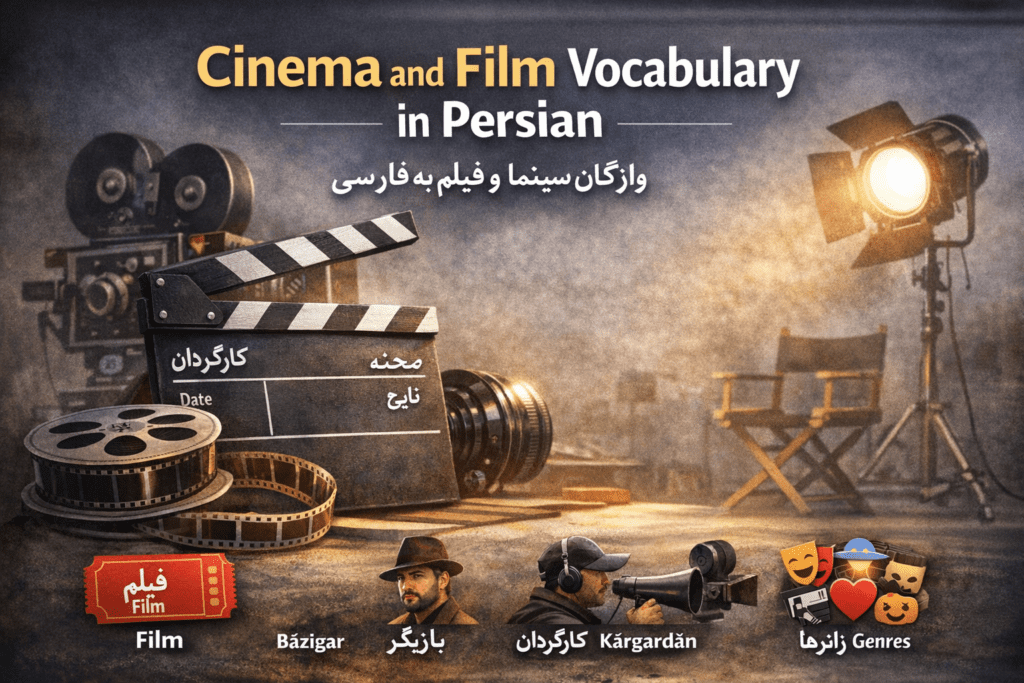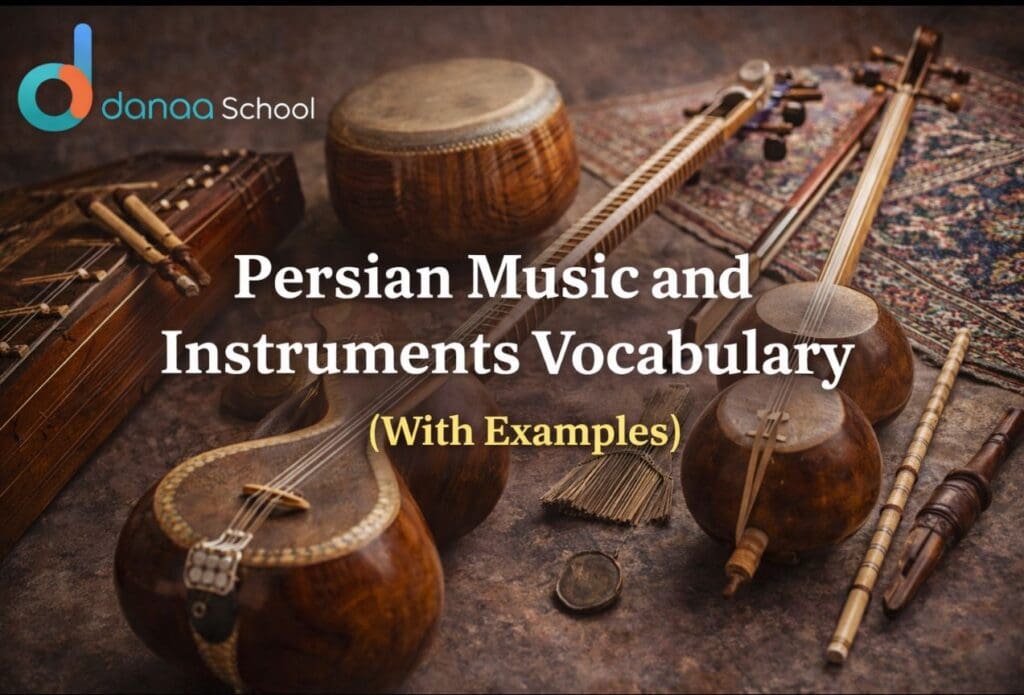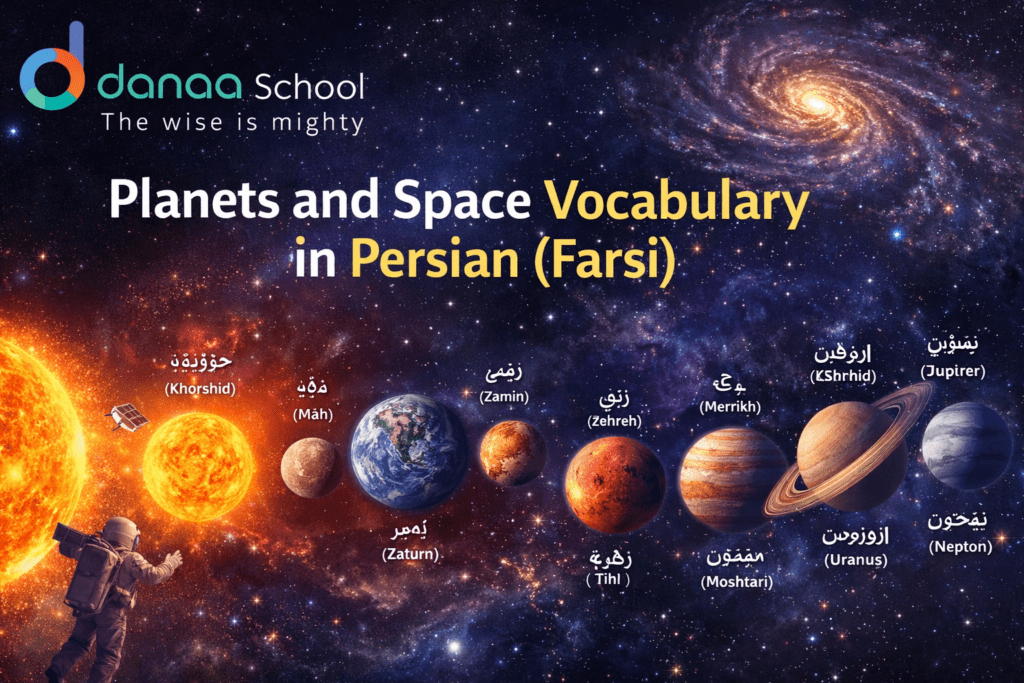Feelings in Farsi
Feelings in Farsi play an essential role in daily communication and cultural expression. Persian (Farsi) has a rich emotional vocabulary that allows speakers to express happiness, love, sadness, anger, fear, and calmness with clarity and depth.
Learning emotional vocabulary in Farsi helps you communicate naturally, understand Persian culture better, and connect emotionally with native speakers.
Emotional Vocabulary in Farsi
When learning Persian, emotions are one of the most practical and frequently used parts of vocabulary. Below you’ll find common Persian words for different feelings, along with explanations.
Happiness and Joy in Farsi
- خوشحال (Khosh-hāl) – Happy
- شاد (Shād) – Cheerful, joyful
- لذت بردن (Lezzat bordan) – To enjoy
- سرخوش (Sorkhosh) – Blissful, delighted
These words are commonly used in everyday conversations, celebrations, and positive life events.
Sadness and Grief in Farsi
- غمگین (Ghamgin) – Sad
- اندوه (Andooh) – Grief, sorrow
- ناراحت (Nārāhat) – Upset
- دلشکسته (Del-shekaste) – Heartbroken
Persian uses nuanced words to describe different levels of sadness, from mild disappointment to deep emotional pain.
Love and Affection in Farsi
- عشق (Eshgh) – Love
- دوست داشتن (Doost dāshtan) – To love / like
- مهر (Mehr) – Affection, kindness
- عاشق شدن (Āshegh shodan) – To fall in love
Love-related vocabulary is deeply rooted in Persian literature and everyday speech.
Anger and Frustration in Farsi
- عصبانی (Asabāni) – Angry
- خشم (Khashm) – Fury
- رنجیدن (Ranjidan) – To feel hurt
- حرص خوردن (Hers khordan) – To be frustrated
Some of these expressions are formal, while others are commonly used in spoken Persian.
Fear and Anxiety in Farsi
- ترس (Tars) – Fear
- اضطراب (Eztarāb) – Anxiety
- نگران (Negarān) – Worried
- وحشت (Vahshat) – Panic, terror
Calmness and Comfort in Farsi
- آرامش (Ārāmesh) – Calm, peace
- بیخیال (Bi-khiyāl) – Carefree
- راحت (Rāhat) – Comfortable, at ease
These words are often used to describe emotional balance and inner peace.
FAQs
- What does “feelings” mean in Farsi?
Feelings in Farsi are commonly expressed using emotional nouns and adjectives such as خوشحال (happy) or ناراحت (upset). - Is emotional vocabulary important when learning Persian?
Yes. Emotional words are used daily and help you sound natural and culturally aware. - Are these words formal or informal?
Most are neutral and can be used in both spoken and written Persian. - How can I practice feelings in Farsi?
By using them in sentences, conversations, and guided lessons with native speakers.
Learning Persian with Danaa School
Danaa School offers structured Persian courses that focus on real-life communication, cultural understanding, and emotional expression. Whether you are a beginner or an advanced learner, expert tutors guide you step by step.
Start learning Persian today and express your feelings naturally and confidently in Farsi.
Find Your Ideal Teacher
At Danaa School, you can choose your Farsi tutor from a selection of qualified and experienced teachers. Begin an exceptional journey into the world of Persian language!
Book Your Trial Lesson
FAQs
Why is it important to learn emotional vocabulary in Farsi?
Learning emotional vocabulary allows you to express feelings authentically and connect deeply with Persian culture and speakers. It enriches your conversational skills and helps you understand the cultural nuances behind the words.
Can emotional words in Farsi have multiple meanings?
Yes, many emotional words in Farsi can have layered meanings depending on the context. For instance, “دوست داشتن” (Doost dashtan) can mean “to like” or “to love” based on its usage.
Are there regional variations in how emotions are expressed in Farsi?
While the vocabulary remains consistent, regional accents and dialects may slightly alter pronunciation or usage. For example, colloquial expressions for frustration or happiness may differ across Iran, Afghanistan, and Tajikistan.
How can I practice using these emotional words in conversations?
Join language exchange groups, participate in online Persian classes like those offered by Danaa School, and watch Persian movies or TV shows to see how these words are used in real-life contexts.
What are some good resources for learning Persian emotional vocabulary?
You can use Persian-English dictionaries, Farsi learning apps, Persian poetry, and platforms like Danaa School, which specialize in teaching Persian with cultural insights.
Is Persian poetry a good source to learn emotional vocabulary?
Absolutely! Persian poetry is rich with emotional expression and offers a beautiful way to explore deeper meanings behind words like عشق (Eshgh) and اندوه (Andooh).
How can I better understand the cultural context of Persian emotional vocabulary?
Engage with Persian literature, music, and cinema, which often highlight the cultural significance of emotions. Learning from native speakers or instructors at Danaa School can also provide firsthand insights.
Conclusion
Mastering the emotional vocabulary in Farsi opens up a deeper level of understanding and communication in the Persian language. It allows learners to express their feelings and connect with others on an emotional level, making conversations more meaningful.
From expressing love and happiness to describing sorrow and anger, these words are essential tools in any Persian learner’s toolkit. Whether you’re studying at Danaa School or practicing on your own, adding these emotional expressions to your Farsi will undoubtedly enrich your language skills. Enroll now.
Want to Learn Farsi at Danaa School?
Here are the best resources for you!









